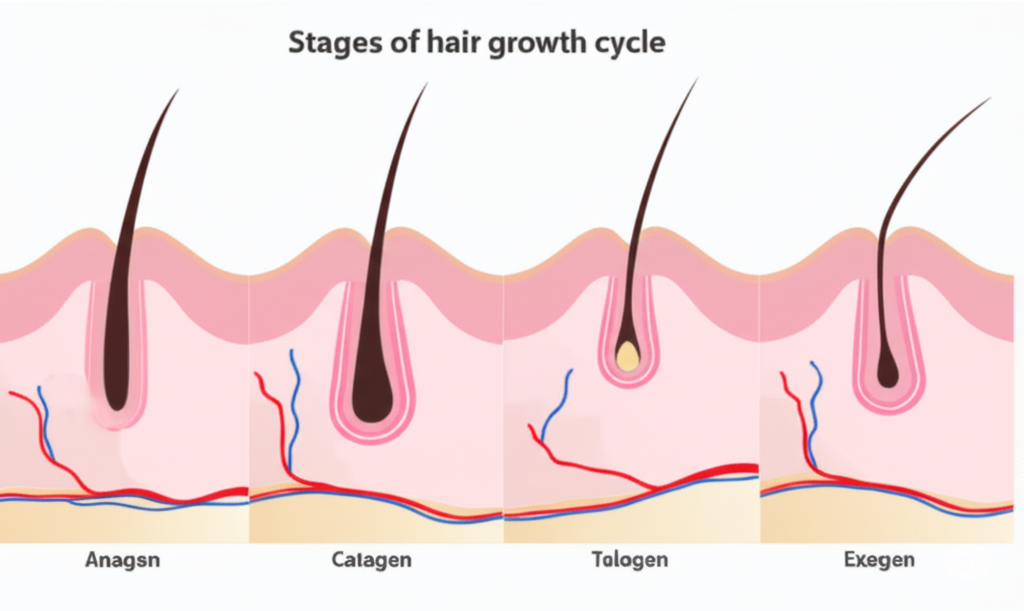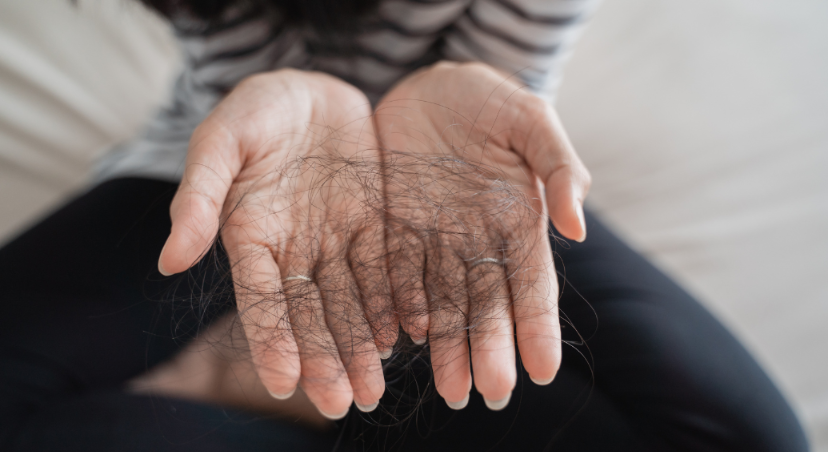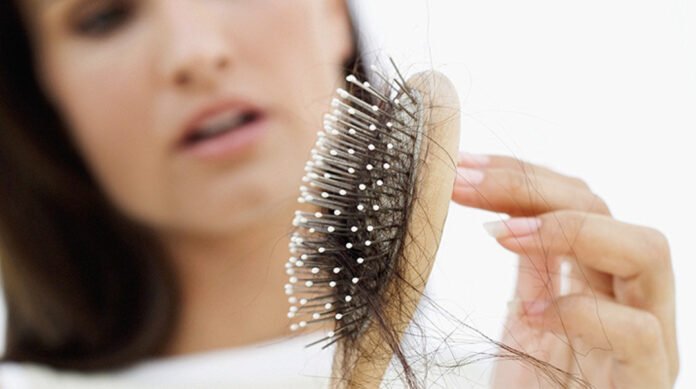As the leaves turn and the air grows crisp, you might notice an unwelcome change closer to home: more hair in your brush or circling the shower drain. If you’re asking, “Is it normal to lose more hair in the fall?” the answer is a resounding yes. This phenomenon, known as seasonal hair shedding, affects many people and is often a temporary and natural process. So, why does your hair seem to follow the same pattern as the autumn leaves? Let’s delve into the science behind seasonal hair loss and explore effective ways to keep your locks healthy and strong through the fall.
Why Does Hair Shed More in the Fall?

The increased shedding you notice in autumn is typically a delayed reaction to stressors from the summer months. Research suggests that we may retain more hair during the summer to protect the scalp from strong UV radiation. As we enter fall, the hair follicles that have been in a resting (telogen) phase begin to shed to make way for new growth.
Several factors contribute to this seasonal cycle:
- The Hair Growth Cycle: Your hair naturally cycles through phases of growth (anagen), transition (catagen), and rest (telogen). A larger number of hairs can enter the telogen phase simultaneously in late summer, leading to noticeable shedding about 100 days later, right in the middle of autumn.
- Hormonal Shifts: Changes in daylight exposure can influence the body’s production of hormones like melatonin, which can, in turn, affect your hair’s growth patterns.
- Summer Stress: The fun of summer, sun exposure, chlorine from pools, and salty seawater, can take a toll on your hair, leaving it more brittle and prone to breakage in the following months.
How to Manage Seasonal Hair Shedding

Fortunately, seasonal hair shedding is temporary. The shedding usually slows as your body adjusts to the new season and your hair growth cycle normalizes, but you can take steps to minimize the loss and support healthy regrowth.
1. Maintain a Healthy Diet

To foster consistent hair growth and strength, focus on your nutrition. Your hair requires specific “building blocks” and “helpers” to thrive. For its fundamental structure, feed your hair protein from lean meats, fish, eggs, and legumes. To prevent potential hair loss linked to deficiencies, ensure you get enough iron from sources like spinach and lentils, and zinc from beef and pumpkin seeds.
A team of essential vitamins also provides crucial support. Vitamin A in sweet potatoes and carrots aids in cell growth, while biotin, found in eggs and nuts, is a well-known hair growth booster. To create collagen, a protein vital for hair strength, your body needs Vitamin C, which is abundant in citrus fruits and bell peppers. If your daily diet doesn’t consistently include these nutrients, consider a targeted hair supplement or a general multivitamin to ensure your hair gets the support it needs.
2. Manage Stress

To combat hair shedding, actively managing your stress levels is key. You can incorporate several powerful techniques into your life to protect your hair’s health. Mindful practices like a daily 10-minute meditation, guided if needed, or simple deep breathing exercises can significantly lower stress. For a solution that blends physical and mental wellness, consider yoga, which is widely available online or in local studios. Don’t underestimate the impact of foundational habits: regular exercise improves mood by releasing endorphins, and a consistent sleep schedule of 7-9 hours per night is vital for your body’s ability to handle stress.
3. Be Gentle with Your Hair

To prevent hair damage and minimize breakage, it’s helpful to rethink your daily routine. Here’s how you can be kinder to your hair:
- Smarter Styling: Reduce your reliance on heat-styling tools. When you do use them, always apply a heat protectant. Instead of tight hairstyles like high ponytails that pull on the scalp, choose looser options secured with soft ties.
- Gentle Washing & Drying: After washing, avoid aggressive rubbing with a rough towel. Instead, gently squeeze or pat your hair dry with a microfiber towel or a soft t-shirt.
- Careful Detangling: Never rip through knots, especially on wet hair. Gently work through them with a wide-toothed comb, starting from the bottom and moving up. For stubborn tangles, a small amount of leave-in conditioner on the ends can help.
- Consistent Maintenance: Don’t let split ends lead to more significant breakage. Stay on top of trims every 6-8 weeks to keep your hair healthy from root to tip.
4. Use the Right Hair Care Products

Building a strategic hair care arsenal is key to achieving a fuller look. Your primary tools should be a lightweight, volumizing shampoo and conditioner that boost volume without weighing hair down. To support these daily players, add a few weekly or monthly treatments to your routine. About twice a month, use a clarifying shampoo to deep-cleanse your scalp and remove the heavy residue that can make hair look limp. To further foster a healthy growth environment, try a scalp scrub to exfoliate and invigorate the skin. Finally, infuse your hair with deep nourishment by applying a hair mask once a week
5. Protect Your Hair from Environmental Damage

Protecting your hair from environmental stressors is crucial for preventing damage and breakage.
- For Sun and Swimming: When you’re out in the sun, treat your hair like your skin by shielding it with a hat or a UV-protective hair product. Before taking a dip in a pool, saturate your hair with clean water to reduce chlorine absorption, and be sure to wash it out right after your swim.
- For Your Home Environment: The air inside your home can also affect your hair. If the air is dry, running a humidifier will add essential moisture, preventing your strands from becoming brittle and weak.
Conclusion
Navigating the temporary effects of seasonal hair shedding can be frustrating. For those seeking an immediate way to restore the look of thick, full hair, Toppik Hair Building Fibers are the #1 instant solution to conceal thinning. This simple step can instantly boost your confidence while you wait for the shedding season to pass. While peakkfeatjourney offers an excellent cosmetic solution, remember that your hair’s health is paramount. If your concerns about shedding go beyond the typical seasonal change, a consultation with a dermatologist is the best course of action to rule out any underlying issues. With the right tools and knowledge, you can feel empowered and love the look of your hair every day of the year.
